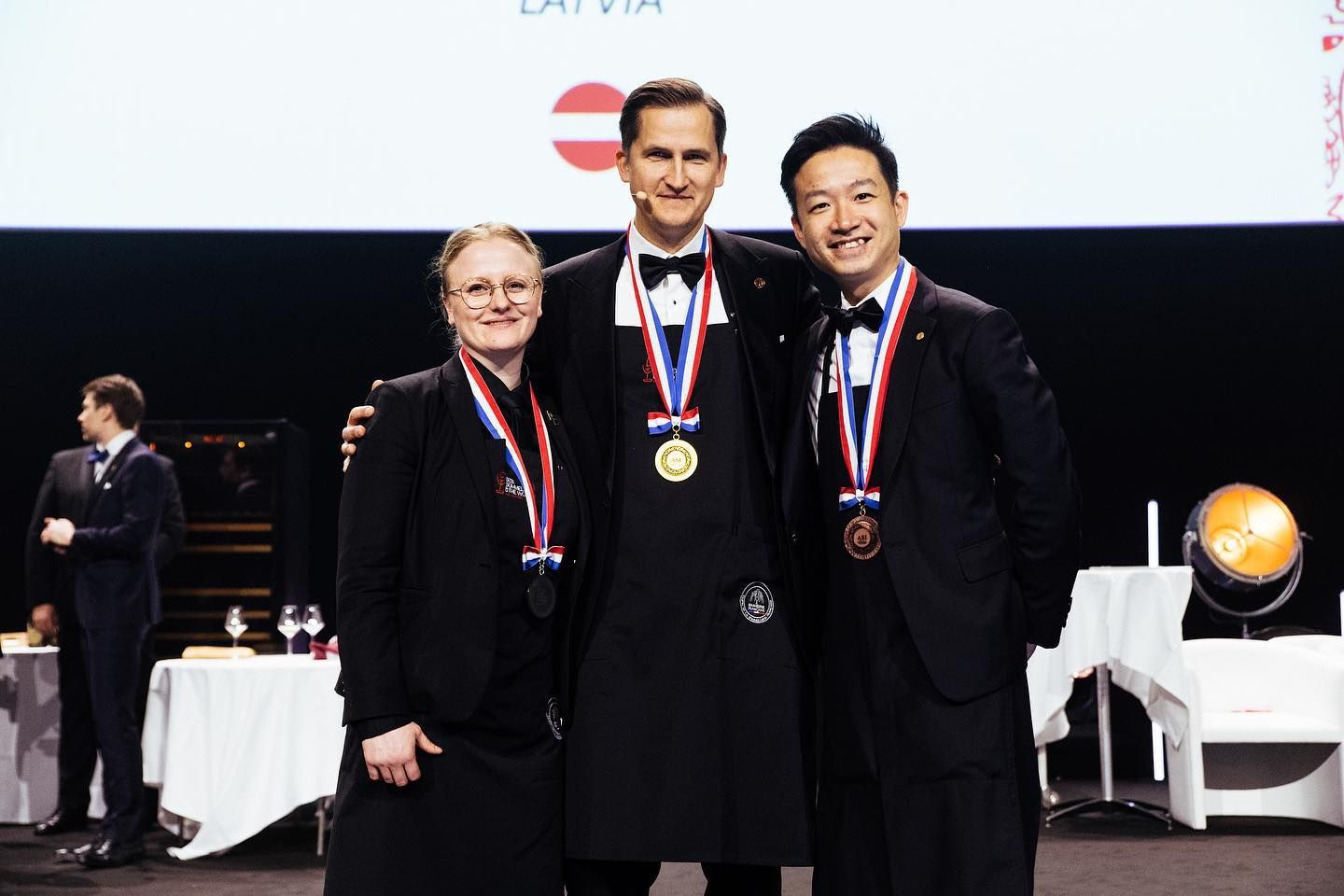From cleaning floors to claiming a podium finish at one of the top sommelier competitions in the world, find out how one of Hong Kong's own brought the global spotlight on the city's wine community
Over six days this past February, 68 sommeliers from around the globe converged in Paris for one of the pre-eminent international competitions in the world of wine: the ASI Best Sommelier of the World contest. First held in 1969, the contest has repeated every three years, each time putting those daring enough to brave it through a seemingly endless number of rigorous tests, from blind tasting to food pairings, decanting, the precise pouring of sparkling wine, style of service and more.
This year, as the dust settled on the competition finals, Reeze Choi, the Hong Kong-born representative for China, emerged as the second runner-up, marking a momentous win for the city's wine community: it's the first time Hong Kong and China have ever entered the finals, with Choi being one of only three Asian candidates with a podium finish in the history of the competition.
A seasoned competition sommelier, Choi already lays claim to a glowing litany of achievements to his name, having worked at the likes of L'Atelier de Joël Robuchon Hong Kong and Upper Modern Bistro, as well as competing in a number of sommelier competitions internationally and serving as a judge for the Hong Kong International Wine & Spirit Competition. Today, Choi also runs his own wine consultancy and sommelier services company, Somm's Philosophy, where he's worked with the likes of Neighborhood, Kappo Rin, Cartier, and Gaggenau.
Yet, none of this was pre-ordained, with Choi living out a true rags-to-riches story that has seen him rise to the uppermost ranks of global wine society. We spoke with Choi after his achievement to know one of Hong Kong's most exciting sommeliers a little bit better.
Read more: I’ll have what she’s having: 11 wine experts on their favourite bottles

How did you first get into the world of wine?
When I was a child, my family wasn’t well-off and I didn’t perform well at school, so I began to work at the age of 16. I tried my hand at many different jobs, from cleaning to working in kitchens and nightclubs, up until I had the chance to work at a fine dining restaurant where I began as a waiter. At the time, my manager told me that the role of a sommelier could offer higher pay, so for that very simple reason I began to study wine. Of course, the more I studied, the more interesting I found wine to be, and the more I loved reading about it. Some time down the line, I moved to a hospitality group to join the sommelier team, and that’s when I officially became a junior sommelier.
What does it take to become a sommelier at the competition level?
I competed for the first time in an international competition in 2018, at the ASI Asia-Oceania Best Sommelier competition. To prepare for the competition and to put my all into studying, I quit my job six months in advance—so for that entire time, I wasn’t working at all. So if you ask what it takes to get to a competition level, I would say lots of time spent studying—from eight to 10 hours per day—as well as blind tastings and practical training. It’s here that I have to thank my friends and peers both in and outside of the wine industry who provided the wines for my blind tastings, or gave me their time for me to practice my service training with.
What makes a successful sommelier?
I feel that knowledge is certainly very important, as well as certifications; but to me, these aren’t the most important. Rather, it’s the service we provide—you really have to love serving people—and you need to be humble, because humility is a base from which to interact with clients. These are two indispensable elements to being a good sommelier.
What does this achievement mean to you?
It’s very important to me. It’s been ten years since I entered the competition space—my first was in Hong Kong in 2013—and I’ve always wanted to be one of the best in the field on a global stage. But more than what it means to me, I like to think of what it means to the community. To us Hongkongers, we’ve finally become a frontrunner in this space, so that’s something I’m very proud of. It’s been a great pleasure to be able to win this award. I’ve had to give up many work opportunities and my own time and money to achieve it, so I hope it can bring some change to the community in Hong Kong, and hopefully a better life for myself too.
See also: How to pair wines with vegetarian cuisine like a professional sommelier
